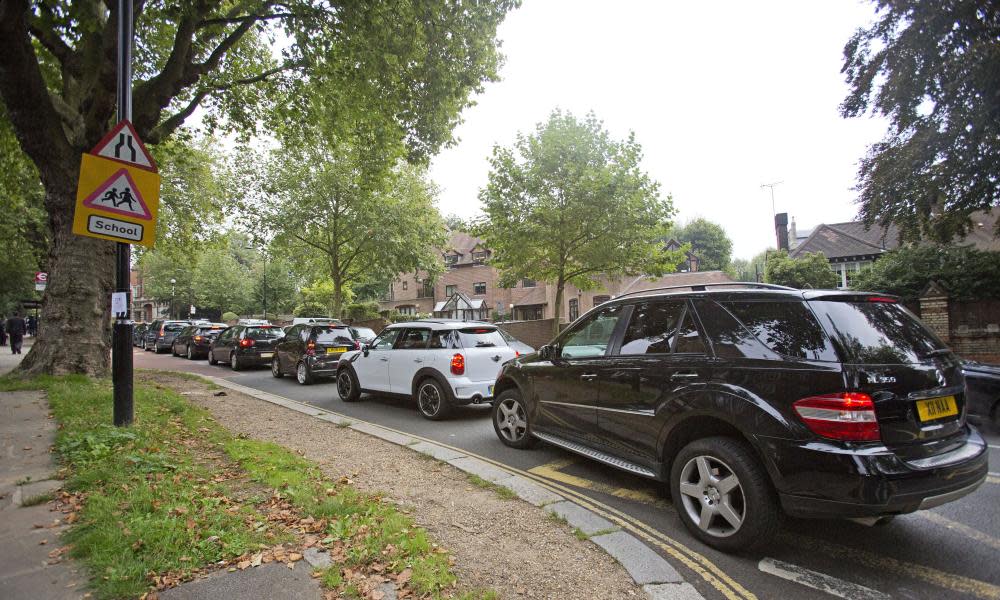UK children inhaling toxic air on school run and in classroom

Children in the UK are being forced to breathe dangerous levels of toxic air as they make their way to and from school – and even once they are inside their classrooms, according to new research.
The findings from academics at Queen Mary University in London reveal that young children were absorbing a disproportionate amount of tiny black carbon particles during the school day with potentially devastating health consequences.
Amy Gibbs of Unicef UK said the results were deeply worrying: “Every day, thousands of children across the UK are setting off on a toxic school run that could impact [on] their lifespan and contribute to serious long-term health problems.”
The research is based on results of about 40 children who were given monitors for a 24-hour period. It found a disproportionate amount of tiny black carbon particles – largely from diesel vehicles – were absorbed as children made their way to or from school. There were also worrying results for the amount of black carbon absorbed in classrooms and playgrounds.
Prof Jonathan Grigg from Queen Mary University led the study and said the findings underlined the need for a radical and urgent clean up of the nation’s air.
“We know that black carbon has long-term health implications for young people and this shows that they are absorbing a disproportionate amount of these toxic particles during the school day, whether that be walking along a busy road or sitting in a car breathing in diesel fumes or even in the playground or classroom.”
The findings are the latest to highlight the huge toll the UK’s air pollution crisis is taking on the nation’s health – from a rise in asthma deaths to a reduction in intelligence.
On Sunday new evidence emerged showing that toxic air – already strongly linked to harm in unborn babies – travels through pregnant women’s lungs and lodge in their placentas.
Children and babies are known to be particularly vulnerable and last year the Guardian revealed that hundreds of thousands of young people are being exposed to illegal levels of damaging air pollution from diesel vehicles at schools and nurseries across England and Wales.
Tuesday’s research found that children are exposed to more than 60% of the air pollution they take in each day during the school run and while at school even though it accounts for only 40% of the time.
It focuses on black carbon, tiny particles that are one of the most dangerous for health as they can penetrate deep into the lungs and enter the bloodstream and potentially the brain.
Gibb said that for babies and children, exposure to black carbon during these critical stages of development can stunt lung and brain growth and cause lifelong health problems.
Many schools are doing what they can to tackle the problem – from banning parents driving to school to moving entrances away from busy roads. But Gibbs said it was unacceptable that the burden for a public health emergency should be falling on parents, children and individual schools.
“We cannot afford to continue to overlook this invisible but serious threat,” she said, adding that “change is possible if the government acts now.”
“It is critical that it sets out a clear strategy with sufficient funding to protect children from the harmful effects of toxic air, when and where they are proven to be most at risk.”
The government has been defeated three times in the high court because its plans to tackle air pollution have been deemed too weak and has been widely criticised by green groups and clean air campaigners.
Cities around the country are starting to draw up plans to tackle air pollution but activists say it requires a concerted national strategy with a diesel scrappage scheme and clean air zones.
Air pollution causes 40,000 premature deaths a year and has a devastating impact on the lives of hundreds of thousands more people. Last year MPs said air pollution – which costs the NHS and social care services £40m a year – was a public health emergency.

 Yahoo News
Yahoo News 
